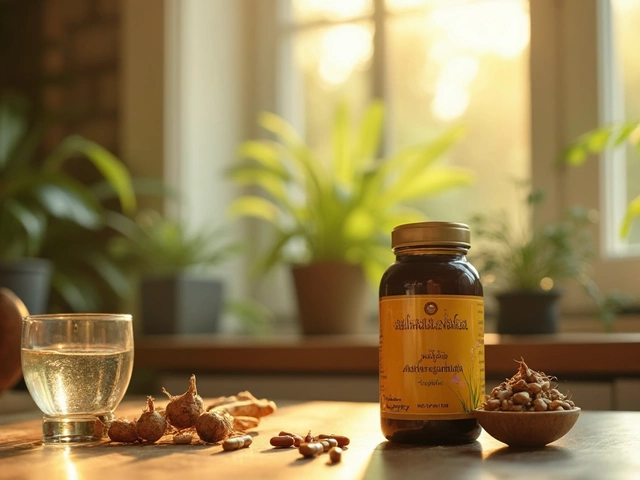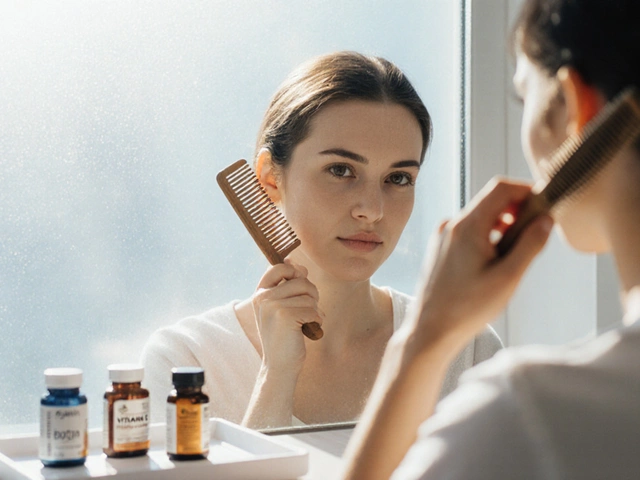Herbs: Safe Use, Top Supplements, and Practical Tips
If you’ve ever wondered whether a herb you found on a shelf is actually good for you, you’re not alone. People mix herbs into tea, smoothies, or capsules thinking they’re harmless, but the truth is a bit more nuanced. In this guide we’ll break down how to spot quality herbs, avoid the ones that can hurt your kidneys, and pick the best supplements for everyday health.
Choosing Quality Herbal Supplements
First off, don’t assume every product with a botanical name is pure. Look for a label that lists the exact part of the plant (leaf, root, seed) and the amount of active ingredient. A reputable brand will also mention third‑party testing – that’s a solid sign the product isn’t just filler.
Next, check the source. Herbs grown in certified organic farms are less likely to have pesticide residues. If the label says “wild‑crafted” but gives no location, ask where it came from. Indian herbs like ashwagandha and turmeric are often harvested in specific climates; the right soil makes a big difference.
Finally, watch the price. Extremely cheap herbal capsules usually mean cheap extraction methods or low‑quality raw material. You’ll get better value paying a little more for a product that guarantees purity, safety, and potency.
Common Herbs That Can Harm Your Kidneys
Herbs are natural, but that doesn’t make them automatically safe. Some popular herbs contain compounds that can stress the kidneys, especially if you already have reduced kidney function. Here are three to keep an eye on:
- Aristolochia (birthwort) – used in some traditional formulas, it contains aristolochic acid, a known kidney toxin.
- Chinese skullcap – marketed for inflammation, but high doses have been linked to acute kidney injury.
- Chaparral – praised for detox, yet studies show it can cause kidney inflammation when taken regularly.
If you’re on medication for blood pressure, diabetes, or any chronic condition, talk to a doctor before adding any new herb. Even “safe” herbs like green tea can become a problem in large quantities because of their caffeine and tannin content.
Beyond these risky herbs, most everyday spices – ginger, cinnamon, and turmeric – are safe for the kidneys when used in normal culinary amounts. The key is moderation and quality sourcing.
Now that you know what to avoid, let’s look at three herbs that most people can benefit from without fuss.
Ashwagandha helps manage stress and improve sleep. Choose a capsule that provides 300‑500 mg of withanolides per dose. It works well with a simple bedtime routine.
Turmeric (curcumin) is a powerful anti‑inflammatory. Pair it with a pinch of black pepper to boost absorption, and aim for a supplement that contains 95 % curcuminoids.
Ginseng can give a gentle energy lift. Look for Asian ginseng (Panax ginseng) and keep the daily dose under 200 mg to avoid jitteriness.
Putting these three into your daily regimen doesn’t require a complicated schedule – a single capsule with breakfast or a tea after lunch works fine. Consistency beats occasional megadoses.
Lastly, remember that herbs work best alongside whole‑food nutrition and regular movement. Use herbs as a supportive layer, not a magic fix.
By checking labels, verifying sources, and steering clear of kidney‑dangerous herbs, you can enjoy the benefits of natural remedies without the hidden risks. Keep this guide handy next time you shop for supplements, and you’ll make smarter choices for a healthier, happier you.





